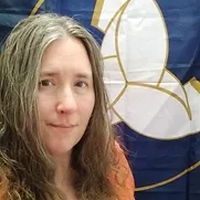Freyr, a Horse, and an Oath
- Nicholas Rice

- Aug 12, 2025
- 3 min read

This my very loose retelling of Hrafnkels Saga.
A young man, named Hrafnkell, arrives in Iceland in the year 900 with his father. They are one of the first settlers. He is full of ambition and excitement for the possibilities of this new land, so his father gives permission to Hrafnkell to stake out on his own and build his own settlement. He names his farm stead Aðalból, which means Noble Home. He builds a large temple to his favorite God, Freyr. He holds lavish ceremonies honoring Freyr. He goes so far as to dedicate his favorite horse, Freyfaxi, to the God. Hrafnkell swears an oath that no one shall ride Freyfaxi, beside himself or Frey. Anyone one who dares will be put to death.
As Hrafnkell becomes a chieftain, while he is good to his own men, he soon builds a reputation of being a bully and unfair to those outside his circle.
A young man named Einar comes to him for employment. He is given the job of shepherd to 50 ewes. Hrafnkell tells Einar about the horse Freyfaxi, the consequence of riding him, and even makes sure he knows there are 12 other horses that can be ridden if the need arises. Things go well for Einar until Miðsumar when 30 ewes go missing. He searches the hills for them for over a week without finding anything. One morning he gets up early and, in an attempt, to cover more ground searching, decides to saddle a horse. As he approaches the horses, they all run from him except Freyfaxi. He decides that Hrafnkell will not find out if he rides Freyfaxi for this important task. He ends up riding Freyfaxi from early morning to nighttime. Just as he is about to give up the search and head back home, he finds the missing ewes and is able to drive them back home. Freyfaxi is covered in sweat, mud, and is completely exhausted. The horse begins to neigh loudly, runs away from Einar and right to where Hrafnkell is sitting. Hrafnkell knows. In the morning, he goes to the stable with nothing but his ax in hand. Einar admits what he had done to Freyfaxi. Hrafnkell leaps off his horse and deals Einar a death blow to uphold his oath. Einar's father, Þorbjörn, is devastated by the death of his son and demands a weregild (a weregild is compensation to a man's family for death or dismemberment by the person guilty of it) from Hrafnkell. Hrafnkell declares that he has never paid a weregild but believes that he should in this case because it wears on his heart. He makes Þorbjörn a very generous lifelong offer and Þorbjörn refuses. Þorbjörn eventually brings others to his side to bring a lawsuit against Hrafnkell and wins. Hrafnkell is removed from his lands, has his fortune taken from him, the temples are burned to the ground, and even poor Freyfaxi is driven off a cliff by Hrafnkell's enemies. Even Hrafnkell's faith in the Gods is shaken.
Many these days would hear this story and wonder why Hrafnkell stuck so stubbornly to his oath that cost him so dearly. It would have been so easy to overlook Einar offence and move forward. Hrafnkell truly believed that no good comes to those who break solemn oaths no matter the consequences of keeping it. He also could have dedicated Freyfaxi to Freyr without making the oath. As with many people, he got caught up in the moment of showing his pure dedication to Freyr by loudly declaring this oath without thinking it through.
What can we take away from this saga? Think your words through before you say them. Oaths are solemn long after they are said and should be treated that way. Even keeping an oath comes with consequences, but the long-term implications are important for Victory of the Folk as a whole.

Sara Ault
Folkbuilder, Wisconsin sault@runestone.org
~ From The Runestone, August 2025 ~



